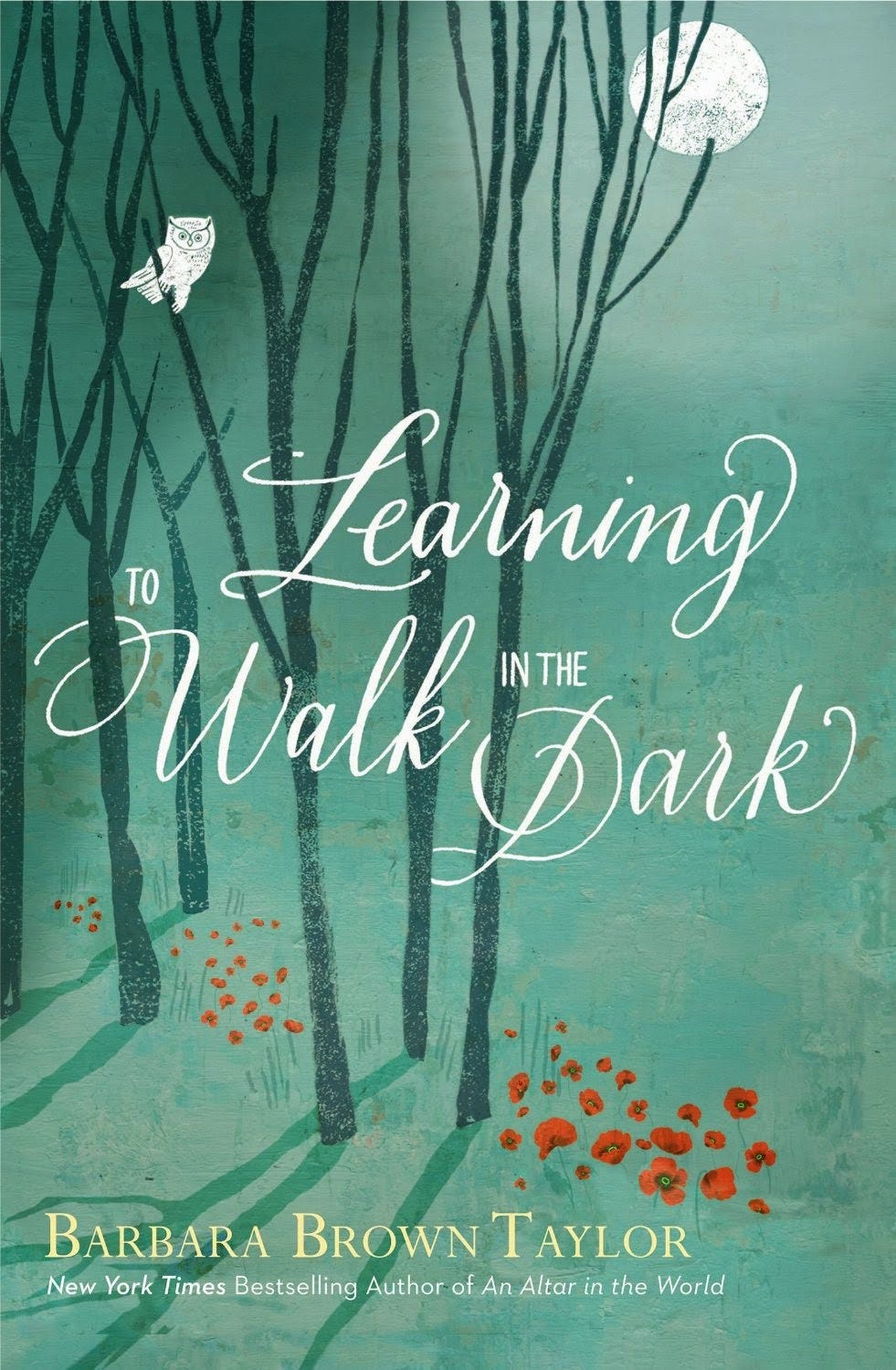Barbara, Stanley and Andrea: Thoughts on Love, Training and Social Psychology at ACU's Summit

ACU's Summit conference continues today. On Monday we had Barbara Brown Taylor on campus. Yesterday, Stanley Hauerwas was with us.
And important to me, and the thrust of this post, on Monday my former graduate student Andrea was also visiting. Andrea and I got to go together to Barbara Brown Taylor's sessions and afterward I reflected a bit about how Stanley Hauerwas, due up, would have responded to her presentations. I also sketched out with Andrea how I fuse and use these two very different Christian thinkers--Barbara and Stanley--in my own faith journey.
And the bridge between these two--Barbara and Stanley--is Andrea.
Well, not Andrea exactly, but what Andrea will represent in this conversation: social psychology.
Specifically, during our time together on campus Andrea was catching me up on her doctorate research. Right now Andrea is planning to look at attributions of hypersexuality to out-group members. Throughout history, stigmatized out-group members have been viewed as excessively sexual. For example, historically Whites have viewed Black males as hypersexualized and, thus, have been fearful of Black men sexually preying upon White women.
In another example, the gay population has often been stigmatized as hypersexualized. I recall a conversation I had many years ago with a colleague who was a sociologist. He asked me point blank, "You're a psychologist, so maybe you can tell me. Isn't gay sex just about the sex?" You can see the assumption behind his question: gays are non-relational and hypersexualized, interested in "just the sex."
(Incidentally, if you want to know how I answered my colleague's question, I cocked my head and said, "Well, I actually think most heterosexual sex is just about the sex.")
Why are out-group members often stigmatized as hypersexualized? Andrea has been looking into the dehumanization literature. One hypothesis is that out-group members are often dehumanized, viewed as less-than-human, subhuman, and therefore more bestial, atavistic and animalistic. If we go on to associate unrestrained or undisciplined sex with animals then, in the process of dehumanization, we'll be prone to attribute hypersexuality to out-group members.
I bring up Andrea's research on out-group stigmatization and dehumanization to illustrate the links I see between Barbara Brown Taylor and Stanley Hauerwas.
As theologians, Barbara and Stanley are very, very different. Consequently, they created a sort of theological whiplash by presenting on back to back days.

Barbara Brown Taylor is a wonderful spokesperson for progressive and liberal Christianity. In her sermon on Monday she gave us a beautiful and breath-taking vision of religious pluralism, how God blesses us through religious strangers. As Melchizedek, a Canaanite priest of "the God Most High," blesses Abraham, God comes to us in the words and actions of Muslims, Buddhists and atheists.
And in her afternoon session Barbara spoke approvingly of the longings of those who are "spiritual but not religious," stating that those who have rejected organized religion are prophets, seekers who have left the deadness of organized religion to find a "more authentic experience of God."
Basically, what we heard from Barbara Brown Taylor is what you'd expect to hear from progressive and liberal Christians: a pluralistic and inclusive vision of the love of God.
And I loved it. Barbara Brown Taylor described, with her soaring poetry, a vision of Christianity that took my breath away.
So that was Barbara.
Then came Stanley.
Goodness, Stanley's vision couldn't have been more different than Barbara's. Where Barbara described a pluralistic vision--people of all sort of faiths and unfaiths welcoming and loving each other--Stanley embraced the adjectives "exclusivist" and "sectarian."

Why? Because becoming a Christian, according to Stanley, takes discipline and training in a counter-cultural lifestyle. Where Barbara embraced the "spiritual but not religious" crowd Stanley was dismissive, considering that impulse to be both "sentimental" and a capitulation to the very worst impulses of American consumerism and liberalism. I like how Stanley framed the issue in a morning session. He said, "It's interesting to note, when you ask Christian parents about how they are raising their children, how they will state that they are raising their kids with the goal that when they get older they can 'make up their own minds' about if they want to be a Christian."
"But it never occurs to these Christian parents," Stanley continued, "to raise their children so that when they grow up they can make up their minds about if they want to be an American. Because that--being an American--is never questioned. It's a given."
Basically, if we're going to resist Empire in its late-modern liberal and capitalistic manifestations then, well, we're going to need a Christianity with a bit more backbone.
And just like I did with Barbara, I cheered Stanley. I agree with him.
But how could that be? How can I agree with both Barbara and Stanley given the enormous theological differences between them?
Enter Andrea and social psychology.
When it comes to the big vision stuff, I go with Barbara Brown Taylor. I embrace the big-hearted, inclusive vision of Christian love, welcome and hospitality. I believe that God is love and that the one who loves, in the words of 1 John, knows God. Love is how you know God. Full stop. That's what I believe and that makes me sort of liberal.
And yet, I agree wholeheartedly with Stanley Hauerwas that this liberal vision is prone to sentimentality, superficiality and self-absorption. For many liberals Christianity reduces to tolerance. And tolerance is a far, far cry from the sacrificial, kenotic self-donation that marks the Way of Jesus.
That sort of love involves training, discipline and sacrifice.
And why is that?
Because of Andrea's research.
The trouble with Barbara Brown Taylor's vision is that the beauty of her poetic preaching and writing can hide the ugly truths of social psychology, how, as Andrea's research highlights, we are chronically dehumanizing others. Liberals and conservatives alike. In face of all the social suspicion, hostility, ostracization and violence in the world--from ISIS to the streets of Ferguson--"spiritual but not religious" isn't going to cut it. The cruciform love of Jesus is extraordinarily difficult. It involves discipline, training and communal accountability.
Consider this as well. In her talk about her most recent book Learning to Walk in the Dark Barbara Brown Taylor shared some of the riches from the Christian contemplative tradition, from St. John of the Cross to Teresa of Ávila. And I expect most of the "spiritual but not religious" crowd in the audience ate up this contemplative, mystical material.
But here's the deal. The fruits of the Christian contemplative tradition come from the monastics. Let me repeat that: the monastics. These were people whose knees bled because of how long they knelt in prayer.
You know what we'd call that?
Discipline. Training.
The Christian contemplative tradition is a severe, monastic tradition. Too many progressive and liberal Christians read someone like St. John of the Cross or Thomas Merton as if he were Joel Olsteen. An undemanding and consumeristic contemplation that is inspirational, affirming and motivational. Go you! This is a contemplation for spiritual but not religious people too busy to kneel in prayer, let alone long enough to cause those knees to callous or bleed.
But you know what? While I agree with Stanley's call for a training in Christianity he didn't make my soul sing. He didn't give me a vision of Jesus. Stanley gave me a sense of what it would take to be like Jesus, the effort involved given the social psychological dynamics at work in my heart, but he didn't give me a vision of Jesus. Barbara gave me that.
And that's the source of my critique of Stanley Hauerwas: How the preeminent theologian of the Christian virtue tradition so rarely talks about love.
All told, then, this is how I made sense of the first two days of Summit. Barbara gave me that big-hearted loving vision of Jesus. And Stanley reminded me that this vision is prone to superficiality and sentimentality. Which is extraordinarily dangerous given the social psychological dynamics at work in how we instinctively dehumanize each other.
Love is no easy thing in light of the psychological obstacles at work in every human heart. Every human heart. Love takes discipline, training and community.
Basically, Barbara (liberalism) needs Stanley (training) because of Andrea (social psychology).



